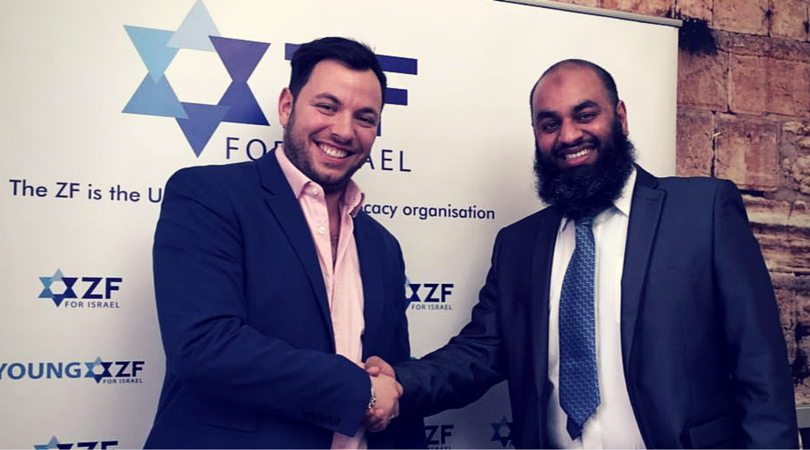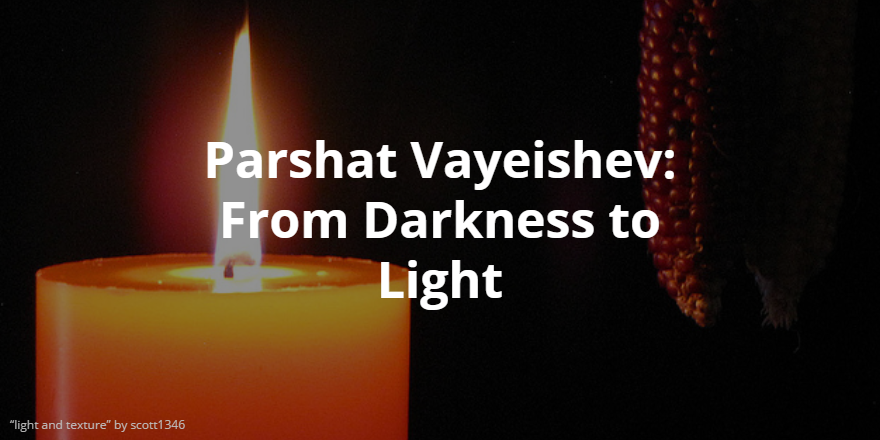Israel requires a massive strategic public diplomacy offensive to generate the freedom of action required for victory-oriented policy.
Wars usually end when failure causes one side to despair when that side has…accepted defeat, and when that defeat has exhausted its will to fight – Daniel Pipes, A New Strategy for Israeli Victory, Commentary, December 14, 2016.
This will be my third and final column in a trilogy addressing the recently established Congressional Israel Victory Caucus (CIVC). For my previous two columns, see here and here.
To recap briefly
Readers will recall that the CIVC, launched by Reps. Ron DeSantis (R-FL) and Bill Johnson (R-OH), and initiated by the Middle East Forum, headed by its president Daniel Pipes, is an enterprise that departs sharply—and laudably—from the disproven conventional wisdom on the Israel-Palestinian conflict.
Thus, rather than advocating that the resolution of this conflict is contingent on ongoing and ever-more generous Israeli concessions, CIVC promotes the view that this can only be achieved by an unequivocal Israeli victory—and a commensurate unconditional Palestinian acknowledgement of defeat.
While I warmly commended the initiative’s proposed paradigmatic shift, I laid out several considerations that must be addressed if this welcome enterprise is to be converted from the conceptual to the operational, and transform its benign intention into effective action.
Pipes correctly diagnoses that the most effective (indeed, arguably, the only) way to end protracted conflict is by inflicting defeat on one side which “exhaust[s] its will to fight”. Elsewhere, specifically referring to the Israeli-Palestinian conflict, he aptly observes: “The Oslo Accords and other signed pieces of paper have made matters much worse”, warning: “The farce of negotiations, therefore, needs urgently to end.”
He then asks: “If no more negotiations, then what?”, with his blunt response being to recommend “breaking the Palestinians’ will to fight”.
However, in the Israeli-Palestinian context, breaking the will of the Palestinians alone is unlikely to be sufficient for heralding in a more amicable attitude in the future. Indeed, arguably the most crucial point I endeavored to convey was that, given the external centers of agitation in the surrounding Arab countries and in the wider Muslim world, unless further steps are taken to permanently extinguish the resurgence of any future hope of prying loose the Jewish hold on land they consider Arab, the will to resume fighting will probably reassert itself.
“Kinetic” vs. “non-kinetic” routes to victory
I concluded last week’s column by drawing a distinction between two different paths for achieving victory. The one I deemed “kinetic” and the other “non-kinetic”.
The former entailed the use of naked military force on a massive scale inflicting commensurately massive death and devastation on the Palestinian-Arabs; while the later entailed setting up a comprehensive system to induce large-scale emigration of the Palestinian-Arabs by means of generous material incentives to leave, and commensurately daunting material disincentives for staying.
Pipes appears to acknowledge this sort differentiation in the modes by which victory can be accomplished and defeat imposed. He writes: “Defeat can result either from a military thrashing or from an accretion of economic and political pressures” and points out that “…it does not require total military loss or economic destruction, much less the annihilation of a population”.
I have, of course, no argument with him on this. After all, what Pipes designates “a military thrashing” on the one hand, and “an accretion of economic and political pressures” on the other, correspond closely to my “kinetic” and non-kinetic” routes to victory.
However, I feel compelled to reiterate that, in the Israeli-Palestinian context, exhausting the Palestinian will to fight will not ensure lasting peace. Indeed, in any post-victory reality (whether “kinetic” or “non-kinetic”), which does not definitively preclude the emergence of some self-governing state-like (or quasi-state) entity for the Palestinian-Arab collective, tangible and enduring potential for re-kindling “resistance” will always remain.
Hamas’s man in Ankara?
The reason for this pernicious potential is not only the ample centers of external agitation that exist today in the Arab and Muslim world but also the tenuous state of incumbent regimes, particularly Egypt and Jordan, which would immediately border any such entity.
Little imagination is needed to foretell the destabilizing effect a resurgent Muslim Brotherhood in Egypt and/or a declining monarchy in Jordan would have on a Palestinian administration, installed pursuant to a perfidious surrender to the “Zionist entity”.
An ominous illustration of the menacing prospect was provided this week by Turkey’s ever-more authoritarian president Recep Tayyip Erdoğan, at the provocatively titled Al-Quds (Jerusalem) Forum in Istanbul. With utter disregard for the recently concluded rapprochement agreement with Israel, Erdogan launched into an inciteful diatribe against the Jewish state, denouncing its control of its capital as an intolerable affront: “As a Muslim community…each day that Jerusalem is under occupation is an insult to us”. He urged his co-religionists to flood the city’s holy sites and echoed a call he made several months ago, in which he called on Muslims to support the Palestinian cause and protect Jerusalem from “Judaization” by Israel.
This is hardly unexpected as Turkey strongly supports Hamas, and even after the reconciliation agreement with Israel—and in gross violation of it—continues to allow the organization’s military arm to operate within its territory.
Stark imperative
Clearly then, even if Israel imposes unconditional surrender on the Palestinian-Arabs in Judea-Samaria and Gaza, this would not impact the enmity, or the will, of their supporters and sponsors in Ankara, Tehran and Doha—or conceivably, in Egypt and Jordan should ascendant Islamist elements become increasingly dominant.
With regard to the latter, Efraim Inbar warns “…changes within neighboring states can be rapid. Unexpected scenarios, such as a return of the Muslim Brotherhood to the helm in Egypt or the fall of the Hashemite dynasty… might take place.”
The crucial nature of this caveat is heightened by the critical strategic significance of the territory designated for any prospective self-governing Palestinian-Arab entity and the dire consequences that would ensue should it fall to hostile elements – see here and here.
Accordingly, there is only one way to ensure that the Palestinian-Arab population will not be subjected to externally sourced influences to reignite their will to fight, and to ensure that they will not be exposed to incitement, agitation and cross-border insurgency. Put bluntly, this is to ensure that there is no population which can be impacted by all (or any) of these pernicious pressures.
Last week, I raised the question of how this stark imperative is to be best addressed. Picking up on Pipes’s terminology, is this to be done via “a military thrashing entailing economic destruction, [even] the annihilation of a population” (i.e via the “kinetic” route); or via “an accretion of economic and political pressures” (i.e. via the “non-kinetic” route)?
Victory by “accretion of economic & political pressures”
For well over a decade, I have been advocating adopting the latter course for a variety of reasons – both moral and practical. I have designated this comprehensive policy prescription The Humanitarian Paradigm. This, as do virtually all other major alternatives to the two-state formula currently being proposed, entails the coercive dismantling of the current Palestinian regimes, while providing individual non-belligerent Palestinian-Arabs the opportunity of a better and more secure life elsewhere.
This latter objective—of inducing large-scale emigration—is, as mentioned above, to be accomplished by means of generous material incentives to leave and commensurately daunting material disincentives for staying. Such disincentives would include the phased denial of services currently provided by Israel such as water, electricity, fuel, tax collection and so on, while the option of substantial relocation/rehabilitation grants would obviate any humanitarian crisis such denial is liable to precipitate.
In this regard I was greatly heartened to see that Pipes himself explicitly invokes some of the measures I propose—significantly, some of the harsher ones. Thus, in his prescription for victory, he urges that in face of continuing Palestinian violence, Israel should, inter alia, “dismantle the PA’s security infrastructure” and “reduce and then shut off the water and electricity that Israel supplies”.
A myopic viewpoint
Pipes rightly laments the flaccid attitude that Israel has routinely displayed on the Palestinian issue. Referring to his proposed measures, he writes: “Of course, these steps run exactly counter to the consensus view in Israel today, which seeks above all to keep Palestinians quiescent”, warning that this is a “myopic viewpoint”. (His view coincides with warnings I have given repeatedly that: “successive governments have shied away from taking decisive action against the Palestinian-Arabs in an effort to avoid confrontations in which Israel can prevail, thereby precipitating a confrontation in which it may well not.”)
Pipes diagnoses—again rightly—that this myopia is the product of “unremitting pressure from the outside world, and the U.S. government especially, to accommodate the PA.” prescribing that: “The removal of such pressure will undoubtedly encourage Israelis to adopt the more assertive tactics outlined here.”
I concur entirely, with the only question being: How, and by whom, is the said removal of pressure to be achieved? After all, given the scope and momentum of this “unremitting pressure”, its “removal” is unlikely to occur without significant proactive endeavor from Israel itself.
This brings us to the crux of the problem: Israel’s abdication from any effective action in the field of public diplomacy and the international battle for hearts and minds.
Irrefutable “political algorithm”
After all, what is the major obstacle precluding the “adopt[ion] of more assertive tactics? What is the source of “unremitting [international] pressure …to accommodate the PA.”
Little analytical acumen is required to trace the roots of both of these elements to the perceived legitimacy of the “Palestinian narrative”, according to which the Palestinian-Arabs are an authentic national entity—and hence entitled to everything that such an entity merits, including statehood.
Now, as long as this narrative is perceived as legitimate, Palestinian “resistance” will be seen as a legitimate endeavor to achieve the legitimate objective of statehood—while “assertive” Israel efforts to thwart that endeavor will be seen as “disproportionate” measures to deny that objective i.e. enforce illegitimate “occupation”. As long as this (mis)perception prevails, Israel will always be hamstrung in its measures to combat the Palestinian-Arab “resistance”—and international pressure will remain “unremitting”.
Accordingly, it is virtually an irrefutable “political algorithm” that in order to remove the unremitting international pressure and facilitate the kind of assertive measures Pipe’s prescribes, it is essential to discredit the legitimacy of (i.e. delegitimize) the Palestinian narrative.
This is undoubtedly a formidable task, and a necessary condition for its accomplishment is to acknowledge its magnitude—lest efforts to do so prove inadequate.
A diplomatic iron-dome
In this regard, I have long advocated a massive Israeli investment in a strategic public diplomacy offensive (1% of state budget, or a billion dollars annually) to confront, contend and counter international pressures and generate the freedom of action required for measures of the kind Pipes proposes.
The objective of this sizeable (but in no way, unaffordable) investment would be to configure a diplomatic “iron dome”, whose function would be to intercept the inevitable incoming barrages of demonization and delegitimization against Israel, once it adopts an assertive pro-victory strategy.
But beyond its defensive role, such a strategic diplomatic initiative would be tasked with an offensive one: To aggressively undermine, discredit and ultimately de-legitimize the Palestinian narrative, by exposing the mendacious myths that comprise it, and which provide the fuel that drives the assault on the Jewish state and its right to exist.
Moreover, it should provide and promote a cogent policy alternative for implementation, given the negation of the notion of Palestinian nationhood and the rejection of Palestinian statehood. In this regard, not only is the previously mentioned “Humanitarian Paradigm” the only “non-kinetic” policy blueprint that allows Israel to address both its geographic and demographic imperatives for it to endure as the nation-state of the Jewish people, but it can be shown to be the most humane of all options if it succeeds, and the least inhumane, if it does not.
Hence, as I did last week, I would urge the authors of the CIVC to adopt it as their preferred victory strategy.
Epilogue
Of course the crucial question for many would be: Can Palestinian nationhood, and the accompanying demand for statehood, be removed from the political agenda? In this regard, allow me to conclude with a quote from Pipes himself, who wrote: “Palestinian [national identity] is superficially rooted and…it could eventually come to an end, perhaps as quickly as it got started.”
Ensuring such an outcome is essential to achieving the lofty goals of the bold venture he has initiated.








